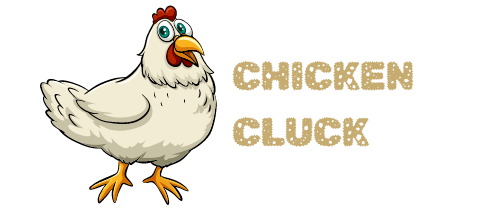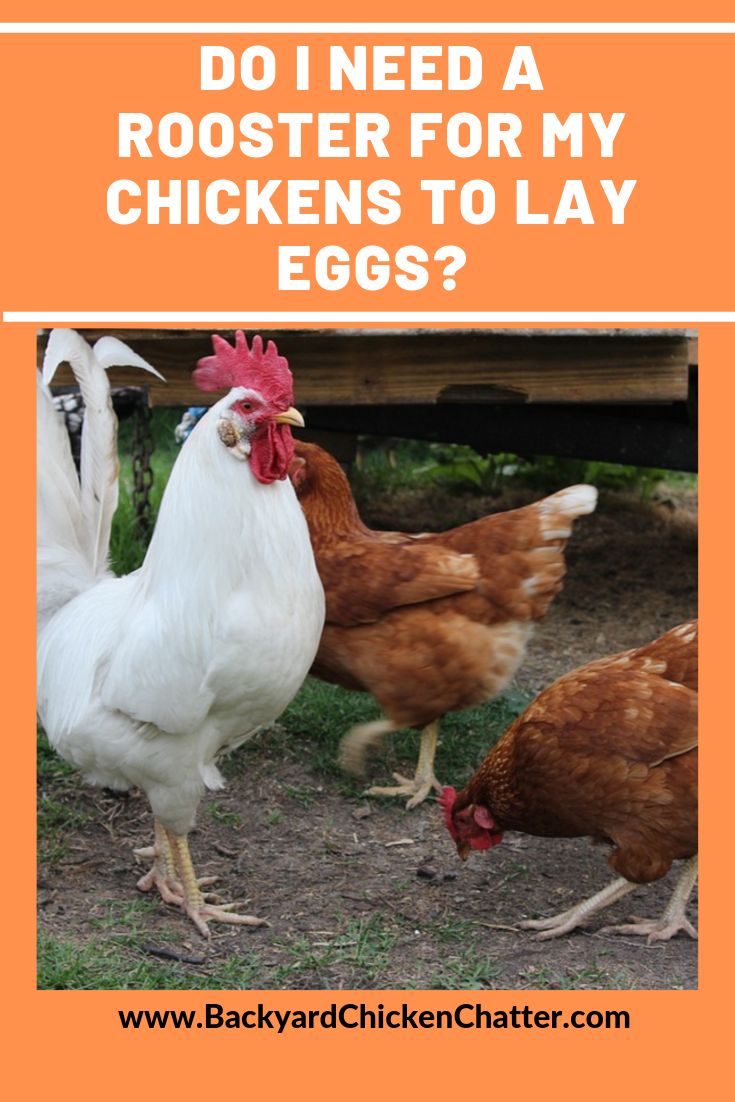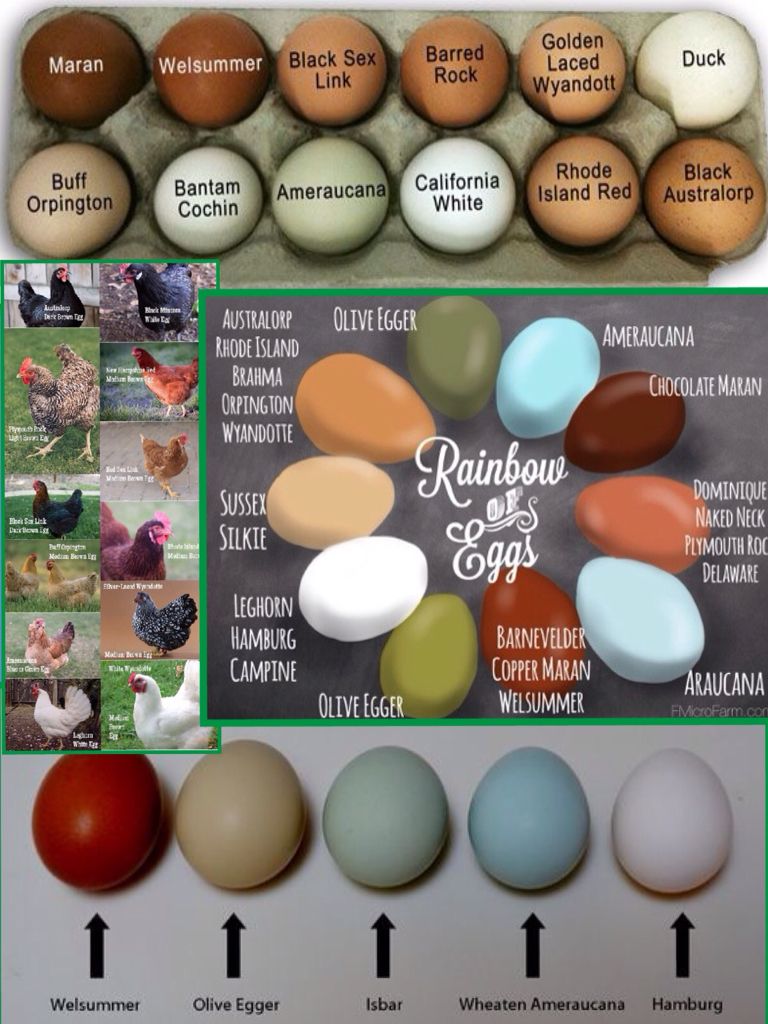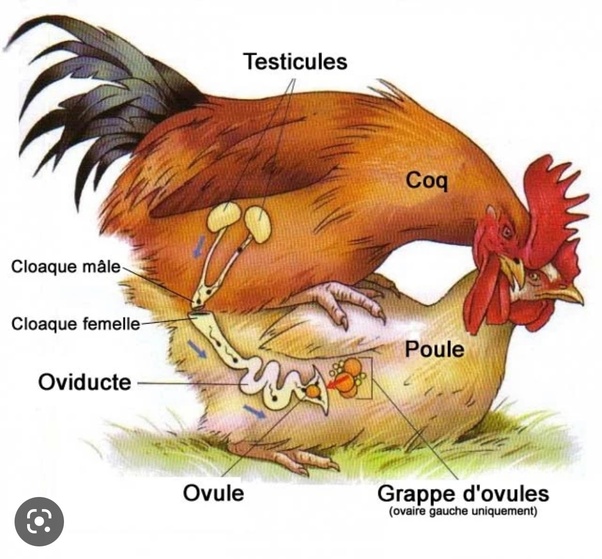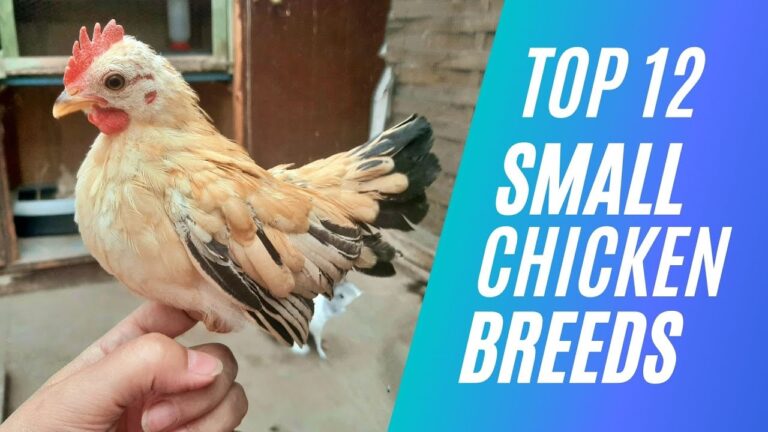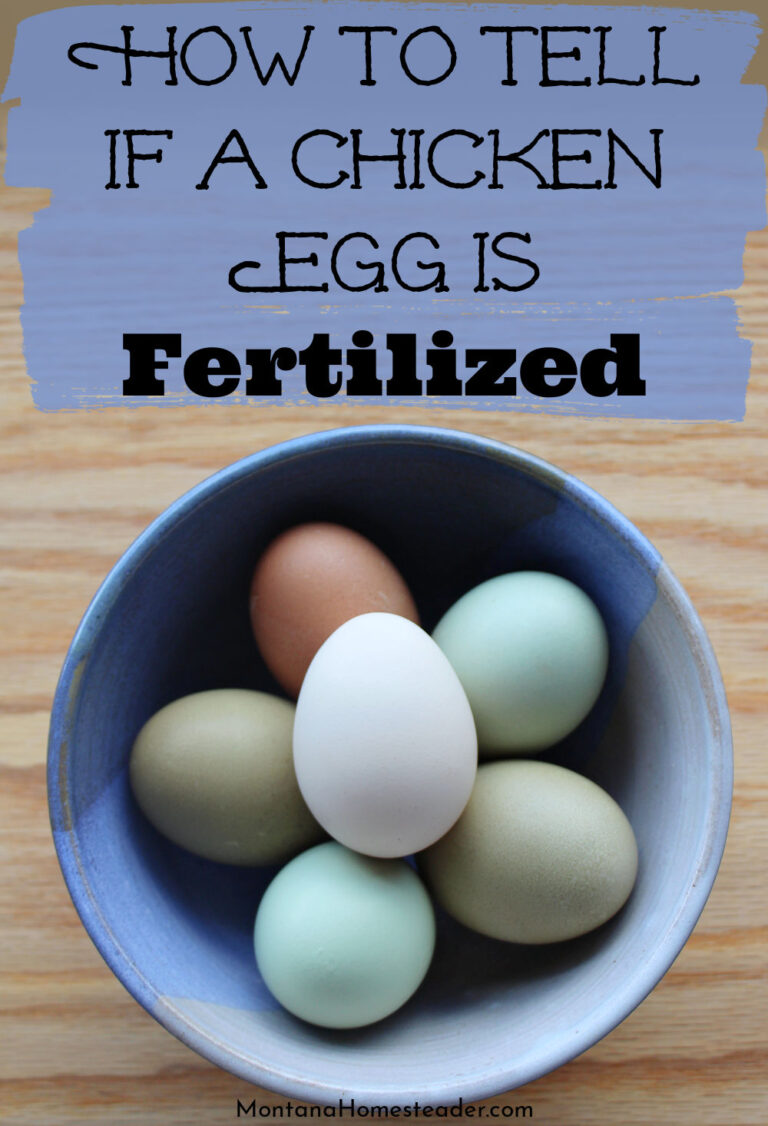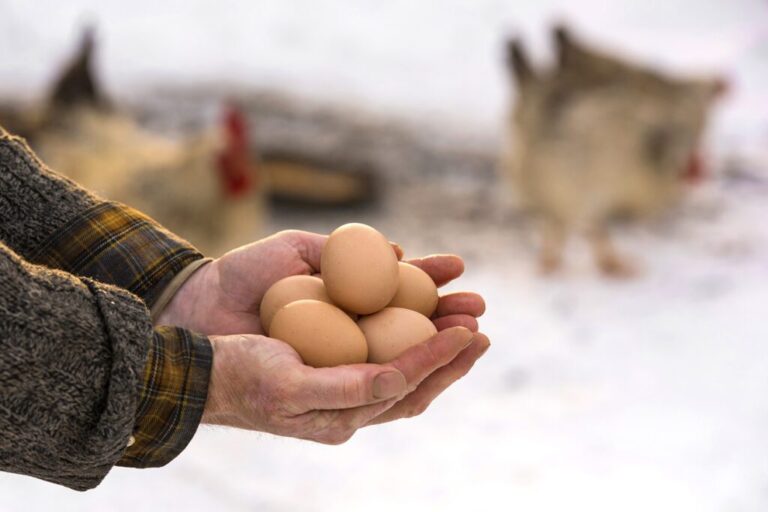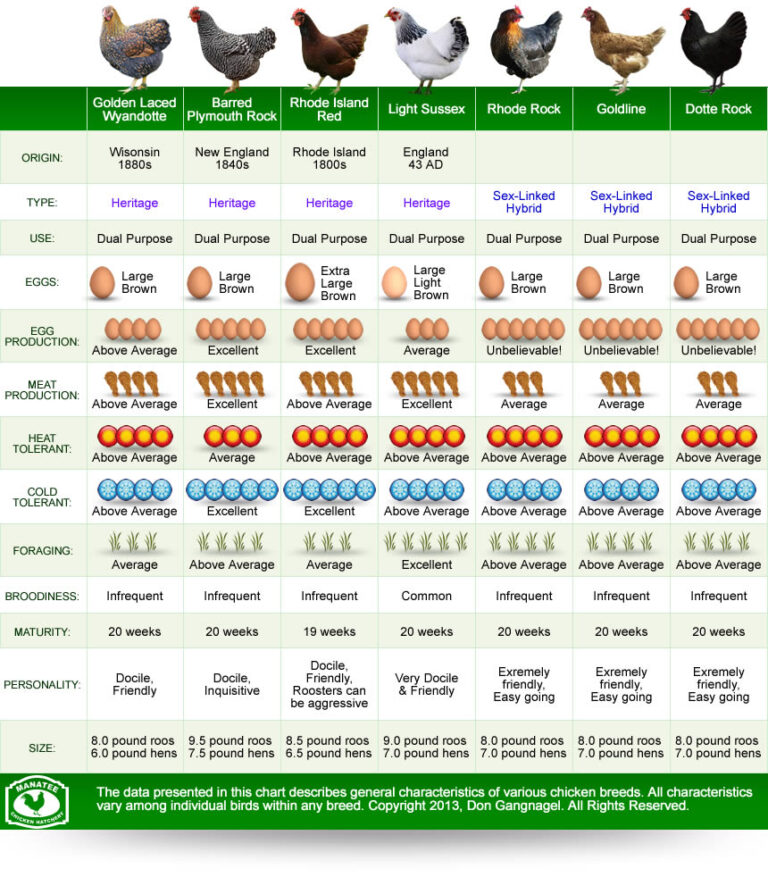Hens do not require a rooster to lay eggs; they will produce eggs without a male. Roosters are necessary only for fertilization.
Backyard chicken keepers often ponder about the necessity of a rooster for egg production. It’s a common misconception that a rooster’s presence is essential for hens to lay eggs, but that’s not the case. Hens are born with an innate capability to lay eggs, and they’ll do so regardless of a rooster’s presence.
The only distinction is that without a rooster, the eggs hens lay are unfertilized and won’t hatch into chicks. Keeping this in mind, it’s essential for those raising chickens for eggs to know that their hens’ productivity is independent of a male counterpart. This insight helps in managing poultry efficiently, whether you aim for a bustling brood or simply a steady supply of fresh eggs for the kitchen.
The Basics Of Hen Reproduction
Ever wonder how those eggs make it to your breakfast plate? Understanding hen reproduction uncovers the mystery. Hens are remarkable creatures, with the ability to lay eggs whether a rooster is present or not. This process is fascinating and integral to the poultry life cycle.
How Hens Lay Eggs
Hens have a unique reproductive system that allows egg production without a rooster. Each hen contains two ovaries, but only the left one is active, producing yolks. Once a yolk matures, it’s released into the oviduct, where the egg begins its journey.
As the yolk travels, layers of whites, membranes, and eventually the shell form around it. This process takes about 24-26 hours. Once complete, the hen lays the egg and the cycle restarts.
- Ovary produces yolk
- Yolk travels through oviduct
- Egg white, membranes, and shell form
- Total process: 24-26 hours
Rooster’s Role In The Flock
While roosters are not essential for egg laying, they do play a vital role in the flock. A rooster contributes to fertilization, which is necessary for hatching chicks, and not for egg production alone.
Besides fertilization, roosters offer protection and maintain order within the flock. They scout for food, sound alarms for predators, and help keep hens together. Think of them as the flock’s guardians.
| Flock Management | Protection |
|---|---|
| Food scouting | Predator alarms |
| Social order | Guarding hens |
Egg-laying: With Or Without A Rooster
Many people wonder whether a rooster is essential for hens to lay eggs. Let’s crack this myth and spread the word about the fascinating world of egg-laying birds. Whether in a bustling farmyard or a serene backyard coop, understanding the role of roosters and hens can be both interesting and helpful.
Natural Egg-laying Process In Hens
Hens have an internal clock that tells them when to lay eggs. They do this regardless of a rooster’s presence. Here are some key points:
- Hens start laying at about 5-6 months old.
- They lay one egg nearly every 24 hours.
- Light is the main trigger for this cycle, not a rooster.
A rooster is only necessary if you want eggs to hatch into chicks. Otherwise, your hens will lay just fine on their own.
The Impact Of A Rooster’s Presence On Egg Production
Raising chickens can come with surprises. Understand how a rooster might change things:
| Without Rooster | With Rooster |
|---|---|
| Eggs are infertile. | Eggs can develop into chicks. |
| Hens may be calmer. | Hens may lay more consistently. |
| No need to separate chicks. | Must consider chick rearing. |
So, roosters can affect egg production, but they’re not needed for the eggs themselves. Hens can and will lay perfectly good eggs without any help from their feathered male counterparts.
The Role Of Roosters In Fertilization
Many wonder if hens require a rooster to lay eggs. Simply put, hens do not need a rooster to lay eggs. Eggs come regularly, with or without a rooster’s presence. Yet, the rooster plays a vital role when it comes to fertilized eggs. Let’s delve into the fascinating work of rooster in chicken reproduction.
Fertilization Of Eggs Explained
Fertilization is the process where rooster’s sperm meets the hen’s egg. This is essential for chick development. Without a rooster, the hen’s eggs are just that—eggs that won’t hatch. Understand this simple process:
- Rooster mates with a hen: This is when sperm is transferred.
- Sperm reaches the ova: Egg and sperm join inside the hen.
- Potential for life: A fertilized egg may develop into a chick.
Differences Between Fertilized And Unfertilized Eggs
| Fertilized Eggs | Unfertilized Eggs |
|---|---|
| Contain rooster’s genetic material. | Lack rooster’s genetic material. |
| Can develop into chicks under right conditions. | Will never hatch into chicks. |
| Have a blastodisc or ‘bullseye’ on the yolk. | Display a solid white spot on the yolk. |
Fertilized and unfertilized eggs look alike from the outside. Inside, subtle signs reveal their difference. The key is in the tiny spot on the yolk. Fertilized eggs show a blastodisc forming a bulls-eye pattern, while unfertilized counterparts present just a dot. Despite these differences, both types of eggs are safe and nutritious to eat.
Benefits Of Keeping A Rooster
Many people wonder if hens need a rooster to lay eggs. The answer is no, hens can lay eggs without a rooster. But keeping a rooster has its own benefits.
Protection And Flock Management
A rooster watches for threats, keeping hens safe. This natural protector can spot predators easily. Roosters also organize the flock, leading hens to food and shelter. With a rooster, hens often seem calmer, knowing they’re guarded.
- Looks out for predators – Hawks, foxes, or other animals
- Keeps order – Manages where the hens feed and roost
- Reduces stress in hens – A calm flock lays better
Breeding And Sustaining The Flock
Interested in raising chicks? A rooster is key for breeding. Fertilized eggs mean future generations of chickens. Preserving rare breeds often depends on a rooster’s presence.
| Benefit | Detail |
|---|---|
| Fertilized Eggs | Needed to hatch chicks |
| Genetic Diversity | Strengthens the flock |
| Breed Preservation | Essential for rare breeds |
Challenges Of Having Roosters
While hens do not require a rooster to lay eggs, many flock keepers consider adding a rooster to their brood. But bringing a rooster home is not all crowing at dawn; it comes with its own set of challenges. Let’s dive into the two significant hurdles: aggressive behavior and the noise they create. Understanding these can help you make an informed decision about whether a rooster fits into your chicken-keeping goals.
Aggressive Behavior
Roosters often display bold characteristics that can sometimes escalate into aggression. This behavior poses risks not only to children and visitors but also to the hens themselves. Below, find out what might happen if a rooster turns hostile:
- Injuries to hens from over-mating
- Chasing or pecking at humans, especially children
- Conflict with other pets or farm animals
Preventing aggression requires going through certain steps. These include providing enough space, establishing a pecking order, and early handling. A stress-free environment is crucial for a calmer rooster.
Legal Restrictions And Neighbor Relations
Roosters crow, and they don’t just crow at sunrise. They can be a source of disruption at all hours, affecting your sleep and potentially your relationships with those living nearby.
| Consideration | Details |
|---|---|
| Legal Restrictions | Many urban areas have strict laws against keeping roosters due to noise ordinances. |
| Neighbor Relations | Continuous crowing can lead to complaints and strained relationships with neighbors. |
Before bringing a rooster into your fold, check local bylaws and consider soundproofing options for your coop. These proactive measures can go a long way in maintaining peace and adhering to regulations.

Credit: www.pinterest.com
Egg Production Factors
Many farmers and backyard poultry enthusiasts often wonder about the elements that influence a hen’s ability to lay eggs. Understanding these factors can help in maintaining a productive flock. Let’s uncover the secrets to egg production without needing a rooster around.
Diet, Health, And Environment
Healthy hens lay more eggs. Their diet plays a crucial role. A balanced feed containing the right amount of proteins, vitamins, and minerals is essential. Clean water and proper feed can lead to robust egg production.
- Proteins build strong eggs.
- Vitamins and minerals keep hens healthy.
- Clean water is necessary every day.
Their living environment also affects egg laying. Hens prefer a calm, safe, and clean space. Overcrowded or stressful conditions can harm production. Consistent light patterns are important too. Hens need about 14 hours of light to lay regularly.
Seasonal And Age-related Changes In Laying
The season impacts how often hens lay eggs. Shorter days in fall and winter usually mean fewer eggs. As daylight increases in spring, expect more eggs.
Hens have a laying prime that typically starts at about 6 months old and can last up to 2 years. Egg production slows down as hens age. Some breeds lay longer than others. These age-related changes are natural.
| Age Range | Expected Egg Production |
|---|---|
| Under 1 Year | High frequency |
| 1-2 Years | Steady production |
| Over 2 Years | Declining rate |
Myths About Hens And Roosters
The world of poultry is full of surprises and misconceptions. One such area where myth often overshadows fact is whether hens need a rooster to lay eggs. Let’s crack open these myths and reveal the truth about hens and their egg-laying capabilities.
Common Misconceptions
Several myths cloud our understanding of hen’s egg-laying process. Let’s debunk some of the most common ones:
- Hens need roosters to lay eggs: This is false. Hens can lay eggs without a rooster.
- Rosters influence egg production: Not quite. Roosters play no role in the number of eggs a hen lays.
- A rooster’s presence improves egg quality: Egg quality depends on the hen’s diet and health, not rooster’s presence.
Separating Fact From Fiction
Understanding the biology of hens is crucial to separating fact from fiction. Here’s what’s true:
| Fact | Fiction |
|---|---|
| Hens lay eggs due to light exposure and their biological cycles. | Hens need roosters to start laying eggs. |
| Roosters are necessary only for fertilization, not egg laying. | Hens lay more eggs if a rooster is around. |
| Healthy hens will lay eggs with or without a rooster. | Egg-laying stops in the absence of a rooster. |
So, let’s set the record straight: hens do not need a rooster to lay eggs. They will produce eggs regardless of a rooster’s presence. Remember, an egg a day keeps the myth away!
Credit: www.quora.com
Deciding On A Rooster
Many backyard chicken keepers ask, “Do hens need a rooster to lay eggs?” The simple answer is no. Hens will lay eggs without a rooster. But deciding whether to have a rooster involves more consideration. Let’s explore the pros and cons and how to tailor this decision to meet your specific goals.
Pros And Cons
Introducing a rooster to your flock has its advantages and disadvantages. Consider both closely.
| Pros | Cons |
|---|---|
| Fertilizes eggs for hatching | May be aggressive |
| Protects hens from predators | Can be noisy |
| Organizes and leads flock | May cause wear on hens |
Tailoring Your Decision To Your Goals
Your goals are crucial in deciding on a rooster. Whether it’s egg production, breeding, or flock management, align your choice with these aims.
- Egg Production: No rooster needed for fresh eggs.
- Breeding: A rooster is essential for fertilized eggs.
- Show: Certain standards may require roosters.
- Flock Dynamics: Roosters manage hens and maintain order.
Remember, think about local laws, space, and noise when considering a rooster.
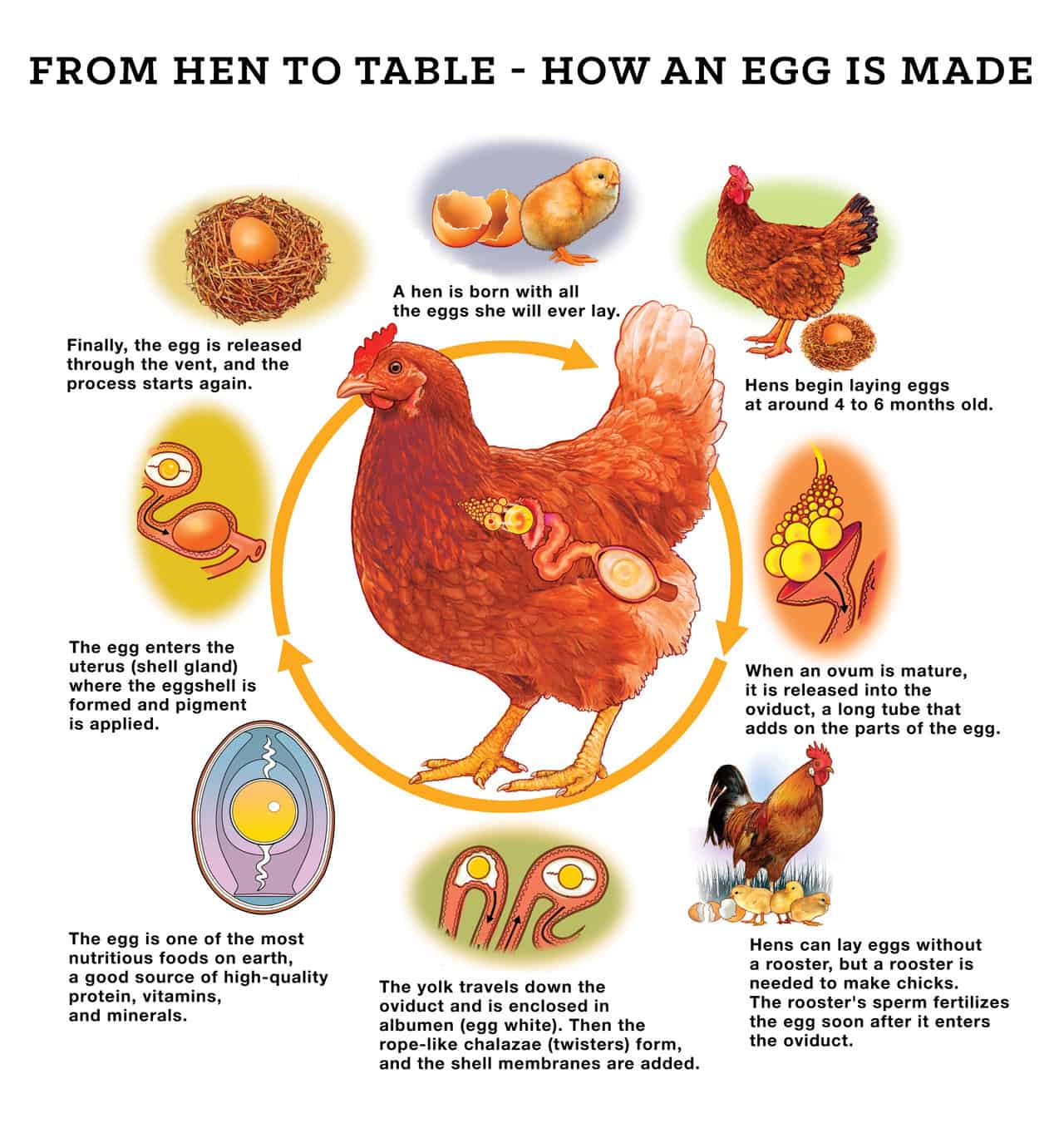
Credit: wranglernetwork.com
Conclusion
In sum, hens are fully capable of laying eggs without a rooster’s presence. This fact reassures those raising chickens for eggs that a rooster is not a necessity. Enjoy fresh, homegrown eggs simply by ensuring your hens are happy and healthy.
Remember, nature allows hens to produce regardless of a rooster’s role.
